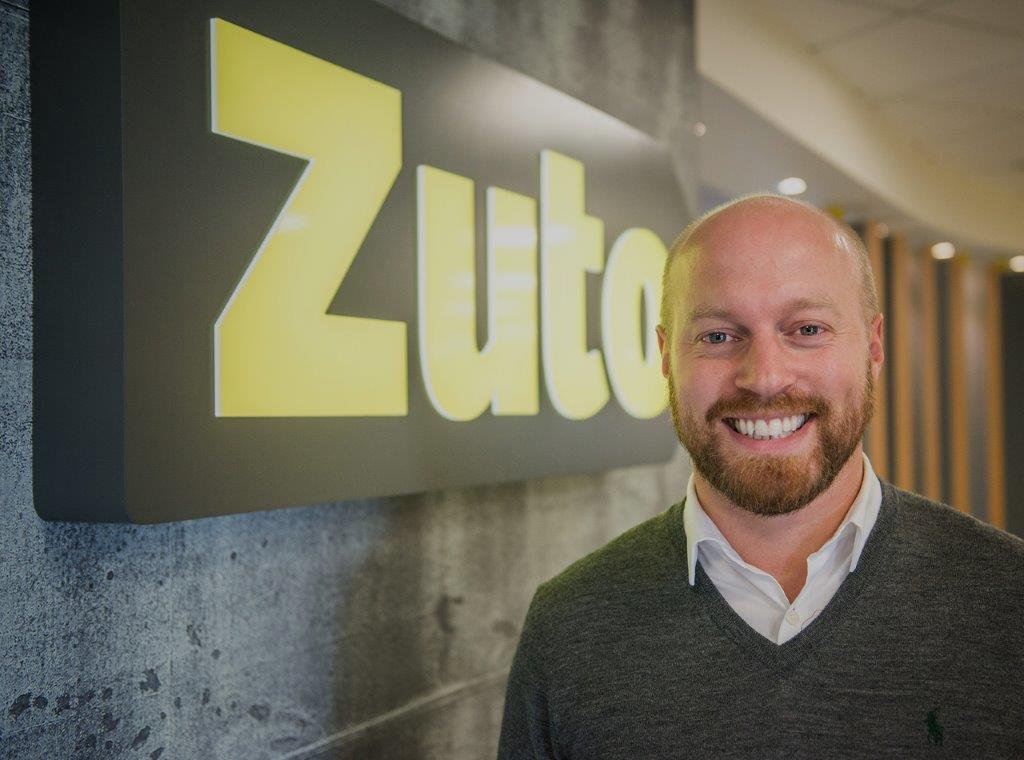The car finance industry has, historically, suffered from an image problem. Plagued by bad practice and unfair lending rates, a change in perception is long overdue, says James Wilkinson, the CEO of Zuto.
Since founding the company, we at Zuto have been on a mission to change the motor finance industry for the better, and that’s why we embarked on the B Corp Certification programme.
Achieving B Corp status, a process that demonstrates how businesses can meet the highest standards of performance, accountability and transparency, is our way of tackling some of the industry’s reputational issues.
While it’s been one of the proudest achievements of my career, it hasn’t been an easy ride. With that in mind, I’m sharing my three key pieces of advice – for others who may be considering this path.

Bring everyone with you on the journey
It’s vital that you make sure everyone in the organisation understands the importance of the B Corp framework from the outset, and what it will mean to achieve certification. People don’t need to be close to every detail but translating the principles in a way that aligns with your own values as a business is critical for internal engagement.
Given the commitments to changes in governance associated with B Corp – namely, to be accountable to all stakeholders, not just shareholders – people need to understand why it’s important to them personally, as well as to their role, the business and the wider industry.

US Tariffs are shifting - will you react or anticipate?
Don’t let policy changes catch you off guard. Stay proactive with real-time data and expert analysis.
By GlobalDataWe started by bringing our board into the loop to ensure they understood how certification would improve every aspect of the business. We then included our leadership team, who were able to cascade details about the initiative to their teams internally. We kept staff informed throughout the two-year process, via our Open Houses sessions – drop-in updates for all staff, and established more regular updates for a smaller group of advocates who had expressed an interest in remaining closer to the initiative.
We also set up internal Impact Groups centred around four key areas: giving back, wellbeing, environment and inclusivity. This empowered staff to inform and drive initiatives that would contribute towards achieving certification and changing our business for the better.
Be prepared to commit appropriate resource
The B Corp assessment process is lengthy and time-consuming. It also requires input from multiple areas of the business. Without a complete commitment to undertake the assessment properly, it will be difficult to succeed.
You really have to put resources behind it. With 500 questions to complete, there is no hiding, cheating or greenwashing. The certification process examines everything from governance, gender pay gap, diversity and staff benefits to purchasing, sustainability practices and charitable giving. Essentially, you have to prove that you are running your business with profit, purpose and people in mind.
It’s also important to note that this is an ongoing commitment. For us, it means we’re now continually monitoring our products to ensure they’re fair and looking at ways to do things better for our customers, our staff and the planet. It may seem obvious, and you may think that companies are doing these things as a matter of course, but by having to renew your certification every three years you’re making an official pledge to remain accountable.
Believe in your ability to use your business as a force for good
B Corp is a growing movement, with more than 4,000 companies completing the process worldwide. But there are still relatively few businesses that have achieved certification in either the finance or the motor industries.
It’s been crucial for us to recognise and believe in what the opportunity means for our sector. With more people, in both consumer and business to business environments, making decisions based on ESG credentials, having a B Corp lens on your business helps you to think about how you can contribute towards a more reputable motor finance industry.
We have an opportunity to demonstrate that the impact we make collectively reaches far beyond simply helping put customers into cars. Going through the process has helped us to crystalise how we can build a growing, profitable business at the same time as supporting local communities, looking after our people, becoming an employer of choice, nurturing an inclusive culture and doing the right thing for our planet.
The road to becoming a B Corp is tough and if you’re not fully committed to its principles, now may not be the right time to pursue it. But certification provides a framework to help understand how to build more sustainable, well-run businesses that we can all be proud of. It also helps to shape and inform the things we can do to keep changing our industry for the better.









